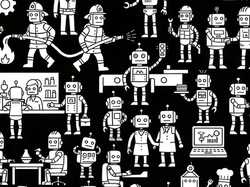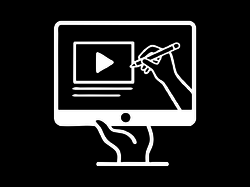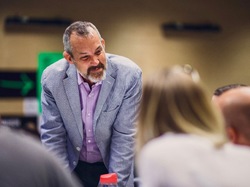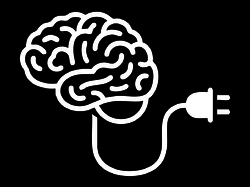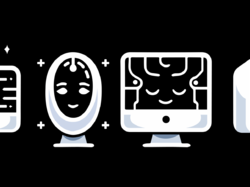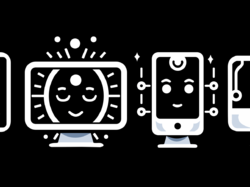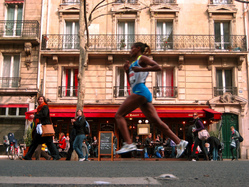
The Paris Marathon swept through the city today, and for a few hours the town belonged to its runners. (See my photos at Flickr.) I live just a few steps from the marathon course, and on the morning of the marathon, it’s always my habit to slip down to cheer on the runners. I park myself just before the 25km mark, about two miles past the halfway mark. I clap, I yell, I smile, I shout their names.
When I was younger, I used to run marathons. I no longer have the time, energy, or legs for the classic distance, so I seek out my challenges elsewhere, off the road. But I like to think that I still understand what marathoners need from their spectators. And here, in the dark middle of the race, runners need encouragement, reminders that they’re strong, that the finish is ahead: plausible, real, within reach.
As the runners glide past my vantage point, they’ve already plowed through more than 15 miles (15 miles!) and still have 11 to go. For some, that means as much as two more hours of running. By now, many of them are already showing the effort (sometimes pain). It’s going to be 11 miles of fighting inner demons, of willing tired bodies to ignore the alarm bells. Mind over matter, mind over matter, mind over matter.
To folks who have never done it before, it sounds ridiculous, masochistic. Nope, it’s optimism. It’s nearly 40,000 people who came to the starting line believing this impossible idea that they can actually cover 26.2 miles at a fast clip. The start is all excitement and possibility, and the end is all accomplishment, joy, and relief. But in between, in the long middle, that’s where you find out who you are. That’s when the doubts creep in to gnaw at the optimism that launched you into this madness. And with 11 miles to go, I can already see it on some of their faces: Jesus, what the hell am I doing to myself?
Everybody’s got their own way of pulling through. The support of family at a carefully chosen point in the course; visualization of the finish; running for a cause; fear of failure; simple discipline; blind faith. Often, it’s all of them wrapped up together in a powerful motivational bundle.
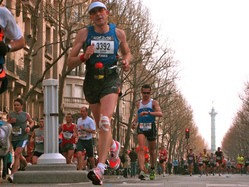
Most of the runners finish, and before long, they forget the pain, let go of the demons. All that remains is the optimism and the accomplishment—the start and the finish. A huge number of these marathoners will even do it again. The thing that sticks with them is not the pain of the marathon’s late miles, but the thrill of possibility and the glow of accomplishment. Get me back out there, I want to do it again.
For reasons I don’t completely understand, I’m personally drawn to long, challenging solo efforts. Fifteen years ago, marathons fit the bill. Now, in my professional life, I similarly seek out big, complex projects to shoulder on my own. This always seems like a great idea at the beginning. But then there’s the long middle. The strain of the thing sets in, the anxiety about whether I’ve finally bitten off more than I can chew. When I rounded the 500th page of my book and realized that I had only a few weeks to finish the remaining 400, I felt like one of those runners. Wiped out, flagging, fighting the demons, painfully aware of the remaining distance. Same thing during the long construction of my books and software projects. Jesus, what the hell am I doing to myself?
And like the marathoners, I eventually found my way to the finish—exhilarated, delighted, flush with accomplishment. This process repeats over and over again: I imagine that I can somehow complete an impossible project and, after some period of agony, actually get it done. Soon afterward, in spite of myself, I find myself looking around for the next thing, some new test, some new challenge. Before I know it, I’m in the thick of another long and agonizing middle, wondering just how I got here all over again.
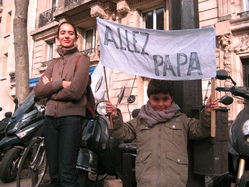
Every single one of the makers I know finds some significant part of the creative process to be downright excruciating. And yet, like childbirth or a marathon, the pain’s memory fades, and we’re soon ready to tackle it all over again. It turns out that the marathon—every kind of marathon—is a creative process, an act of self-invention. That’s why it’s so oddly addictive despite the evident pain. Every maker is a marathoner and vice versa—powered by optimism and faith and a stubborn inability to recall the torture that’s come before. Without this convenient amnesia, we wouldn’t have writers, coders, or artists; their projects would never get started, let alone finish.
If you’ve got one of these troublemakers in your life, here’s how you can help them fight their demons: Stake out a position around 25km and remind them that they can make it, that the pain won’t last. There’s a finish line ahead. Lots of them, in fact.
